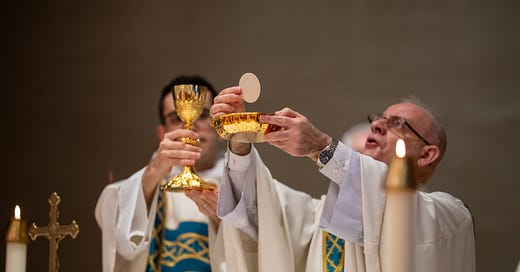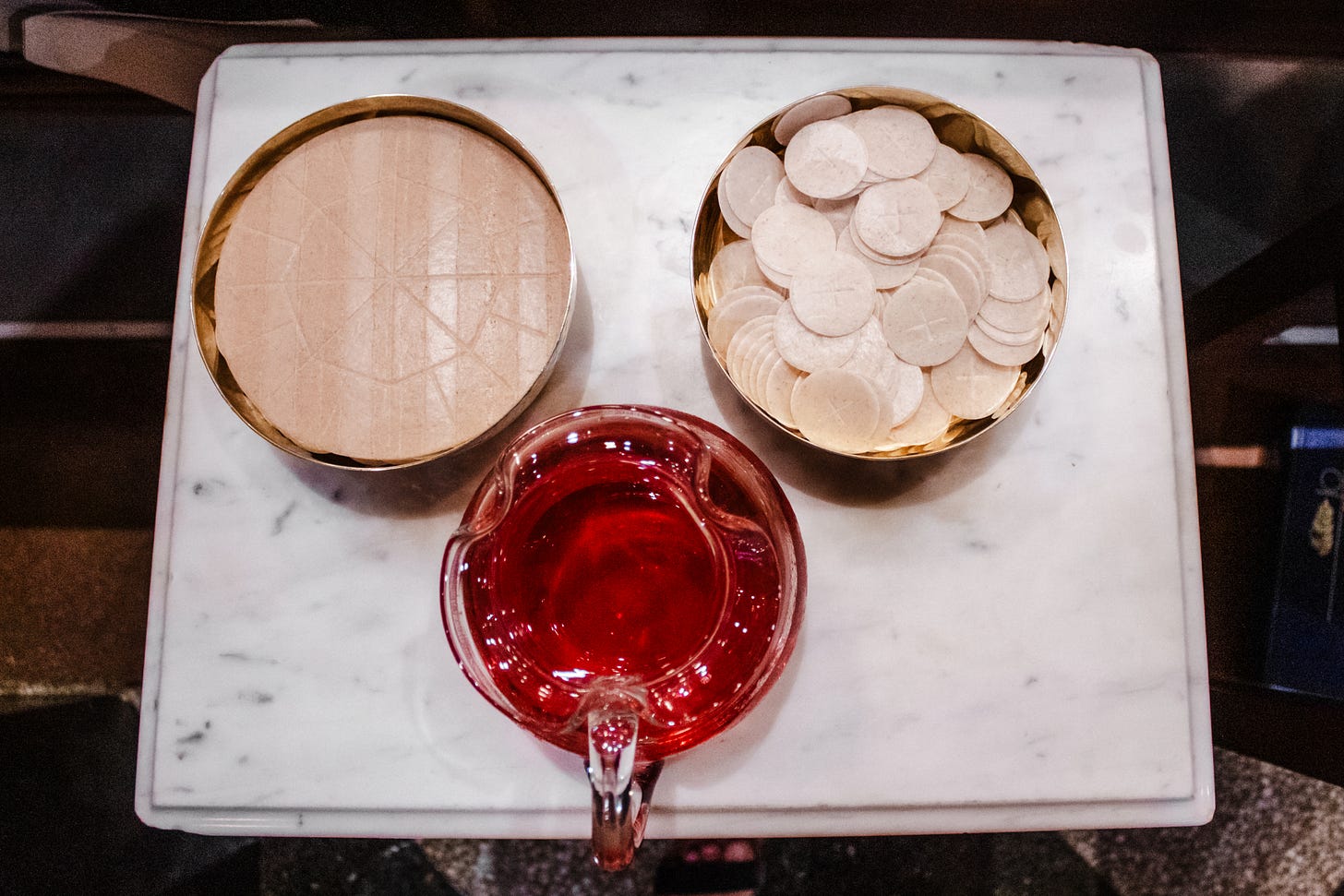“This is my body.”
This short phrase is something we hear as Catholics every time we come to Mass. The words of Jesus spoken once more by the priest over the bread which makes bread into something divine, which makes Bread the Body of Christ, his Real Presence among us.
These words and what they cause are what we celebrate today on the Feast of Corpus Christi, the Feast of the Body and Blood of Christ.
“This is my body.”
A short phrase and one that I and my family did not take seriously for many years. Not because we were bad Catholics, in fact, we weren’t even Catholic at the time! We were Baptists when I was growing up. And so this phrase was always read as a metaphor or something similar. Jesus didn’t actually mean to say that this piece of bread would become his body. It was that simple.
And then my parents sent my brother and I to Catholic school. A school much like our own St. Vincent Ferrer or like Fenwick down the road in Oak Park. And my brother and I started coming home from Catholic School with that most dangerous of things: questions.
Who is God? What’s Mass? Why do Catholics pray to saints? Is the Eucharist really Jesus? And you can imagine my parents horror as good Baptists. Oh no, we’ve put our kids in a cult!
But then they too get curious
They start reading and investigating, looking for answers. And whenever my dad teaches a class at the parish for people becoming Catholic he tells them that it was in large part the Eucharist which convinced him in the end.
It was the fact that he had come to believe that when Jesus said “this is my body” he meant it. Just like he meant “what you do for others and for the least you do to me”.
And from that moment on he knew, my mom knew, and we knew as a family, that we were meant to be Catholic. And so…my mom, my dad, my brother and myself, AND my dad’s parents all entered the Catholic Church together.
Why? Because here Jesus is present. Because here Jesus is alive and well in our midst. Because on that altar in a few moments Jesus Christ will make an appearance as he has done for all these many hundreds of years.
But my friends, it is not enough.
It is not enough to believe in the miracle that happens on that altar, it is not enough to believe in the Eucharist that comes into existence there, if it does not manifest another miracle in our lives.
We consume the Eucharist, and friends, we are meant to become what we eat.
This Eucharist we receive today is supposed to shape our entire lives.
But what does a Eucharistic life look like?
What shape or what features mark a Eucharistic life? What should our life look like?
It says in the Gospels that Jesus took, blessed, and broke the bread when he offered it to his disciples. That is the shape of our lives, laid out in just a few short verbs.
We are to take what we have, to bless it and thank God for what he has given us.
We are to break it open in generosity and in personal service to neighbors, strangers, and the lonely.
And we are to give it all away.
When I think of someone living a Eucharistic Life, I think of my mother. I think of the times when she drove my brother and I hours to go to football games or cross country meets. I think of her daily Rosary which she says without fail for my brother and I each morning.
I think of my Confirmation Sponsor Bob Drehobl, a Navy Vet, who built the house which he and his wife lived in with his own hands and efforts. Who once he retired would spend multiple hours in our Adoration chapel each day.
I think of Tim Klingler who died this year after a terrible fight with cancer but who almost every day without fail would go to early Mass and then go the nearby McDonalds and take coffee and breakfast sandwiches to all the people living on the street, making sure they had at least one good Christian in their lives that day.
I think of the Fenwick family just down on Williams Street who seeing a lonely friar walking along, dared to yell out and invite me into their home for some ice cream and a little wine, and to spend time with them and their family.
These are Eucharistic lives. And I’m sure you have your own examples.
Examples of lives lived in generosity, in radical openness to both what God has given and what God asks us to do generously in response. People who are not afraid to pour out of their abundance for the sake of Jesus and for others.
My friends, Christ speaks truly. This is his body which we will receive.
And if that is true, then we know what our lives need to look like.





